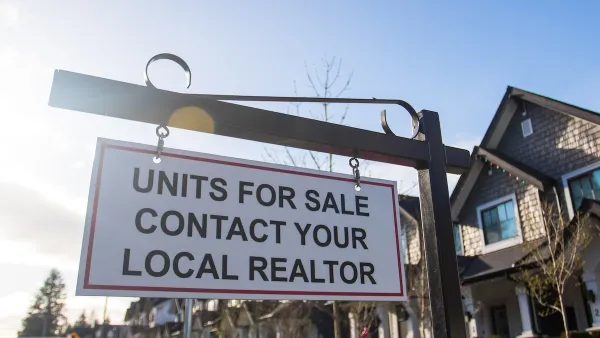Much of the existing literature on Gentrification looks at what happens to residents as places change. Two authors are focusing their attention on commercial uses to better understand the interrelationship between retail and changing neighborhoods.
Nate Berg profiles the work of Rachel Meltzer, assistant professor at the New School, and Jenny Schuetz, an assistant professor at the University of Southern California, who have published several studies intent on exploring the less understood causes and results of Gentrification.
Comparing the mix of retail choices available in affluent and impoverished areas, "It's not just about the number of establishments that are there, but how big are they, what do they look like, what products are they providing," Meltzer says. "It's about a package of services that you get in the neighborhood."
"What's included in that package may make one neighborhood more attractive to a certain type of person, or a certain type of person may make elements of that retail package seem to business owners like viable options in those neighborhoods. Which (and if) one drives the other isn't clear, and may never be."
FULL STORY: Why Do Some Neighborhoods Get Overrun With Chain Stores, While Others Don't?

Maui's Vacation Rental Debate Turns Ugly
Verbal attacks, misinformation campaigns and fistfights plague a high-stakes debate to convert thousands of vacation rentals into long-term housing.

Planetizen Federal Action Tracker
A weekly monitor of how Trump’s orders and actions are impacting planners and planning in America.

In Urban Planning, AI Prompting Could be the New Design Thinking
Creativity has long been key to great urban design. What if we see AI as our new creative partner?

King County Supportive Housing Program Offers Hope for Unhoused Residents
The county is taking a ‘Housing First’ approach that prioritizes getting people into housing, then offering wraparound supportive services.

Researchers Use AI to Get Clearer Picture of US Housing
Analysts are using artificial intelligence to supercharge their research by allowing them to comb through data faster. Though these AI tools can be error prone, they save time and housing researchers are optimistic about the future.

Making Shared Micromobility More Inclusive
Cities and shared mobility system operators can do more to include people with disabilities in planning and operations, per a new report.
Urban Design for Planners 1: Software Tools
This six-course series explores essential urban design concepts using open source software and equips planners with the tools they need to participate fully in the urban design process.
Planning for Universal Design
Learn the tools for implementing Universal Design in planning regulations.
planning NEXT
Appalachian Highlands Housing Partners
Mpact (founded as Rail~Volution)
City of Camden Redevelopment Agency
City of Astoria
City of Portland
City of Laramie





























